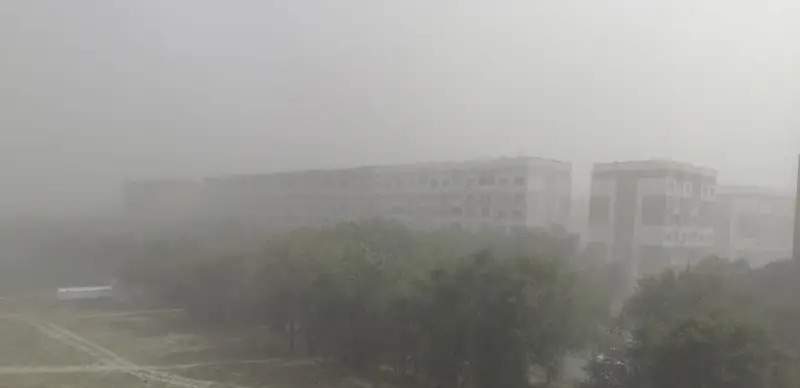Air pollution in Thailand’s Bangkok forces more than 350 schools to close
More than 350 schools in Bangkok have been forced to close due to air pollution, authorities in Thailand’s capital have said, Al Jazeera reports.

The Thai capital has been struggling with hazardous air quality since midweek, when city authorities gave schools permission to close and advised people to work from home after the air quality index (AQI) hit 159, according to IQAir, a partner of the United Nations Environment Programme.

Six-wheel trucks have also been restricted from entering parts of the city.
An AQI reading above 100 is considered unhealthy, while a reading above 200 is rated very unhealthy.
On Friday morning, when authorities announced the closure of about 100 additional schools, the AQI stood at 185.
As of 11am local time, Bangkok ranked as the eighth-most polluted city in the world, behind Dhaka, Lahore, Kathmandu, Karachi, Delhi, Mumbai and Ho Chi Minh City, according to IQAir.
While hundreds of schools remain closed, only about 100,000 of Bangkok’s more than 10 million residents have signed up for a voluntary work-from-home scheme, according to the AFP news agency.
Bangkok Governor Chadchart Sittipunt said the rise in pollution was the result of the seasonal burning of crops, vehicle emissions and the burning of rubbish.
The AQI index, which was developed by the United States Environmental Protection Agency, measures ground-level ozone, particle pollution including PM2.5 and PM10, carbon monoxide, sulphur dioxide and nitrogen dioxide.
Much of Bangkok’s pollution this week was caused by a high concentration of PM2.5, cancer-causing microparticles. The city’s PM2.5 levels hit 108 micrograms per cubic metre on Friday morning, 21.6 times the World Health Organization’s annual guideline.
Pollution levels are expected to subside over the weekend, reaching 71 by Monday, according to a forecast by IQAir.
The Bangkok-based Kasikorn Research Centre said this week that the pollution could cost the city between three and six billion baht ($88-$177m) if it continued for a month, according to the Nation Thailand news site.
As earlier reported, a large study found that greater exposure to long-term air pollution was linked to increased risks for blood clots that can occur in deep veins, according to the U.S. National Institutes of Health (NIH).
